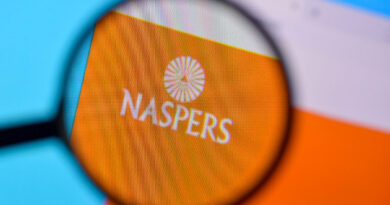Listed IT shares: A massive destruction of shareholder value
EOH Holdings CEO Stephen Van Coller
While big technology shares in the US have continued to hit new highs in 2020 — among them, Microsoft, Apple, Amazon, Google and Nvidia — JSE-listed IT companies have had a torrid start to the new decade.
EOH Holdings, Adapt IT, Blue Label Telecoms and Alviva Holdings are among the worst performers as local investors digest a string of bad news, some of it the result of South Africa’s dire economic conditions but much of it self-inflicted.
EOH is the poster child of how spectacularly bad things can get.
The formerly high-flying technology services company has seen its share price decimated in 2020 – and that has come on top of precipitous declines in 2018 and 2019. With a market value of just R600-million — from well north of R20-billion just three years ago – investors who didn’t exit timeously have seen most of their money evaporate (on paper, anyway).
Year to date (a period of less than two months), EOH shares have collapsed by 72%; over three years, they’re down by a staggering 98%.
The group is weighed down by debt and concerns over the impact of the clean-up of corruption in its public sector business. Rather than giving management, led by CEO Stephen Van Coller, the benefit of the doubt, investors have taken a risk-off approach, assuming turning the group around will take enormous effort and time.
Concern
A report in Business Day on Thursday (pay wall) suggested that investors may no longer be convinced of Van Coller’s strategy, which includes selling assets to reduce debt and fixing the group’s corporate governance standards. Van Coller has taken a hard line against corruption, but some investors have begun voicing concern that his high-profile clean-up campaign might be taking focus away from fixing other issues in the business.
At R3.50/share at Wednesday’s close, EOH is at its lowest price since 2004 and a far cry from its peak above R170/share when former CEO Asher Bohbot’s strategy of continuous bolt-on acquisitions to grow the group appeared to have many (but by no means all) investors enamoured of its ability to keep growing.
Adapt IT, another former market darling, has also seen its share price decimated in 2020. Its value has fallen almost as much as EOH’s – down 60% since 1 January – after reporting disappointing earnings this week that sent the share into freefall.

Adapt IT CEO Sbu Shabalala
Though on a much smaller scale, Adapt IT had a similar strategy to EOH: use its relatively expensive scrip to buy companies, creating a virtuous growth cycle. That was fine, and appeared to work well, until the share price stopped growing and then went into reverse.
Now, pressured by the collapsing share price and a weakened balance sheet, Adapt IT is reviewing its capital structure with a view to reducing its gearing, or the proportion of its debt to equity, CEO Sbu Shabalala said in an interview with TechCentral this week.
He admitted it’s difficult to make fresh acquisitions given its depressed share price and its high net gearing of 66% (higher than its preferred target of 50%). The group has now hired independent advisers to help it with a review of its capital structure. A rights offer is one options among many that may be considered, but Shabalala emphasised that no decisions have been made yet and won’t be until the advisers’ report has been presented to the board.
In just three years, Adapt IT’s share price has tanked by 88%. Its market cap has dwindled to just R200-million.
Meanwhile, all eyes will be on Blue Label Telecoms on Friday when the group, which owns 45% of the troubled mobile operator Cell C, publishes its interim financial results for the six months to end-November 2019. Though Cell C’s full financial results won’t be included in the results (those will be published next month), investors will be looking to clues about a promised turnaround at the ailing and debt-laden operator.
Blue Label’s R5.5-billion investment in Cell C has already been written down to nil, which will flatter the earnings numbers this week. Though the group said earlier this week that its core business remains relatively robust despite the weak economy, investors have continued to fret about its prospects. It was trading down almost 5% on Thursday morning in Johannesburg at R2.42/share, close to an all-time low.
Alviva disappoints
Even Alviva Holdings – the parent of IT distribution companies Axiz and Pinnacle and a one-time market darling – has had a rough start to 2020 after a trading update shocked the investment community. It has lost almost half its value since 1 January.
Alviva said on 14 February that headline earnings for the six months ended 31 December will plunge by between 39% and 46%, or to between R115-million and R130-million. Headline earnings per share were expected to fall by between 33% and 41%, with core earnings per share to fall by between 21% and 31%.
“The company has produced disappointing results for the period, mainly as a result of the performance of the distribution segment,” Alviva said in the trading update. “This segment has been affected by the tough economic environment, operating challenges with its new ERP system, minor losses on forex positions compared to profits in the prior period, and changes in the go-to-market strategy adopted by a large vendor, all of these in approximately equal measure.” — © 2020 NewsCentral Media
Source: techcentral.co.za



